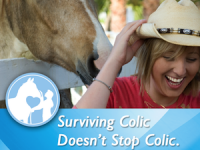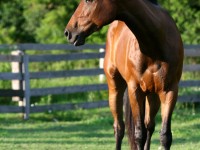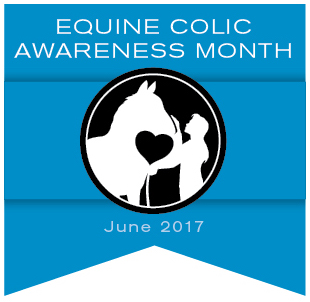
2013 Equine Colic Awareness Month Series Part 1 of 4 Knowing the common signs that a horse is colicking, calling the vet, and getting through even a minor colic is a temporary band-aid, not a permanent fix. Throughout the month of June, the second annual Equine Colic Awareness Month, we will be discussing the importance of colic prevention, why horses are prone to colic, how poor digestive health as a [ Read More ]

Most horse owners know the basic signs and the risks of equine colic, but the truth is that there are also a lot of myths that circulate the barn aisles. Test your knowledge and see how much you really know about colic. 1. If you limit your horse’s access to quality hay/grass, it will lower his risk of colic. False. Horses are natural grazers, they weren’t meant to be stalled [ Read More ]
Posted on October 10, 2012

You know if you see these signs of colic, it’s time to call the vet. You pray that it’s a simple case of gas colic that can be resolved with lots of walking and watching over one sleepless night. But sometimes the outcome requires colic surgery and you suddenly find yourself taking care of a horse in recovery. Either way, your vet will eventually go home and you will be [ Read More ]

Author: Geoff Tucker, DVM, The Equine Practice Colics could be avoided in my opinion if we treated horses like horses. Unfortunately it is almost impossible to do this today. With horses housed behind fences in small paddocks and overcrowded in large barns, the ideal environment is sacrificed for our convenience. Let’s look at only one aspect of this confinement that directly affects the horse and his ability to maintain a [ Read More ]










